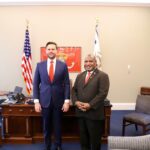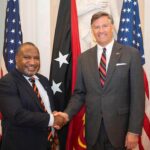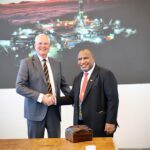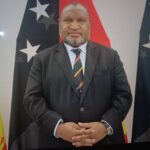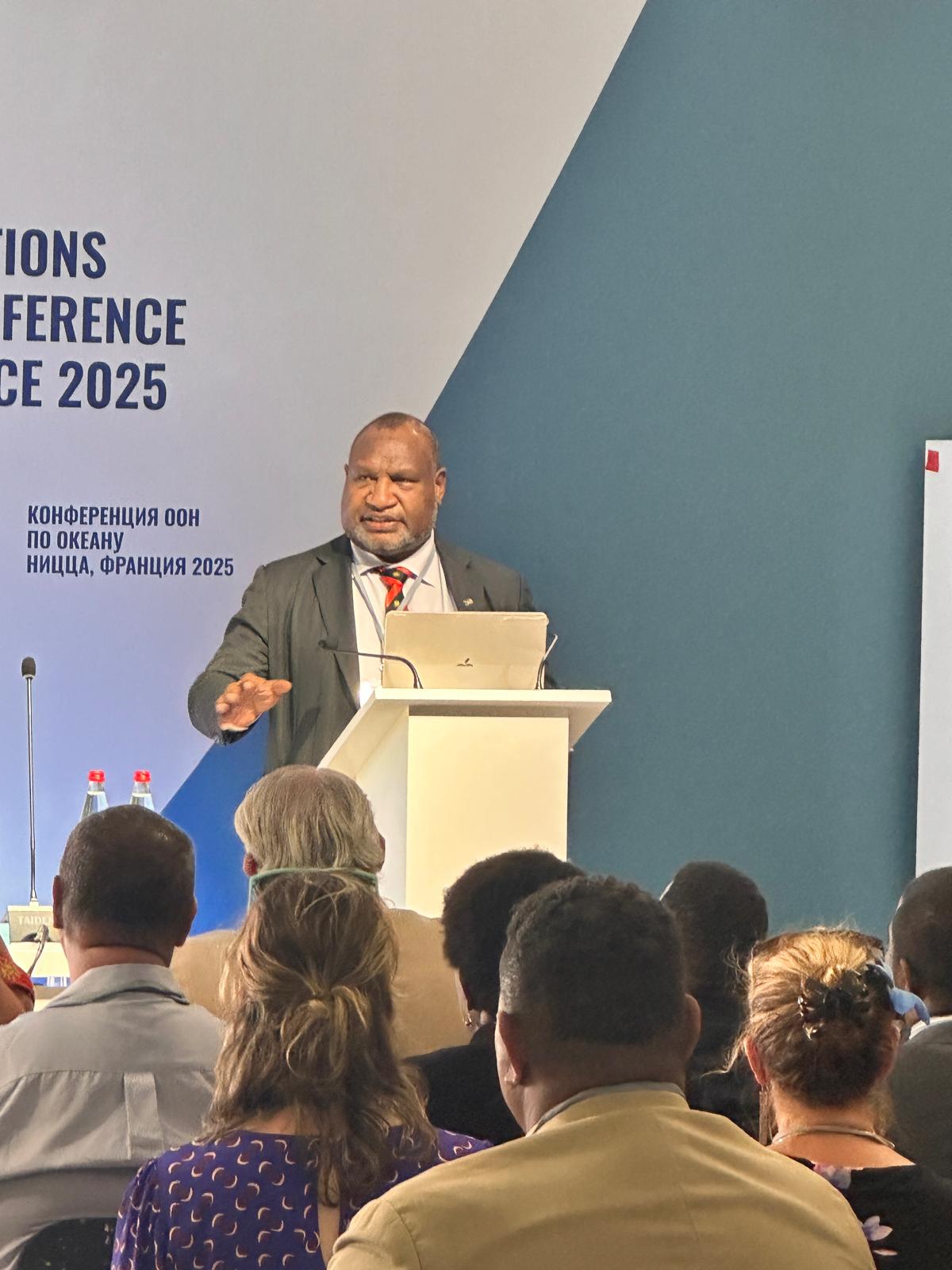Excellencies, Distinguish Leaders, Ladies and Gentlemen,
It is my distinct honor to address the World Island Forum today, representing the people of Papua New Guinea, a nation of over 600 islands and more than 800 languages. As we converge to discuss our distinctive roles in addressing the challenges associated with the oceans and marine ecosystems, I bring perspectives from a nation that embodies both the challenges and opportunities that define our collective journey.
We convene at a very crucial moment when island nations face unprecedented challenges and the world’s oceans under increasing threat. Papua New Guinea, like many of our fellow island states, stands at the frontline of climate change, experiencing its impacts firsthand through rising sea levels, extreme weather patterns and threats to the marine ecosystems. These climate induced challenges are not mere statistics; they directly affect our community’s livelihood.
Over 40% of Papua New Guinea’s population directly depend on coastal and marine ecosystems. Our Exclusive Economic Zones spans over 2.4 million square kilometers, rich with biodiversity, including critical coral reefs, migratory fish stocks and deep-sea mineral resources. Most of these resources are now at risk due to the concerns that have been discussed for the duration of the Forum.
Excellencies, for the Island nations, we are now facing increasing existential threat induced by climate change. The sea-level is rising as ever before, the shorelines are eroding, crops have been destroyed and communities being displaced. Biodiversity is lost from unsustainable fishing, habitat degradation, and warming of the seas which threatens our food security. Marine pollution including plastics and industrial wastes suffocates our reefs and fisheries. PNG does not have that much carbon footprint, yet we are amongst the most vulnerable which an injustice to us is. We, who contribute least to the problem, bear the brunt of its consequences.
Ladies and Gentlemen, PNG is committed to work together with our fellow island nations in our endeavor to lead concerted efforts towards sustainable use of the oceans. For Papua New Guinea, we are advancing our National Oceans Policy, aligned with the UN Sustainable Development Goal 14: to conserve and sustainably use the oceans, seas, and the marine resources.
We have declared multiple Marine Protected Areas (MPAs), including Bismarck Sea Seascape, and are working with local communities, traditional custodians, and regional partners to expand sustainable management of the marine environment. We are implementing Community-based fisheries management, and empowering local governance.
On the waste management front, PNG has put a ban on single-use plastics, aiming to curb ocean-bound waste. We are engaging in blue carbon initiatives, including mangrove restoration and seagrass protection. We encourage sustainable blue economy pathways, including eco-tourism, aquaculture, and renewable ocean energy.
Furthermore, we are strengthening our laws against illegal, unreported, and unregulated (IUU) fishing and enhancing surveillance through regional cooperation such as the Pacific Islands Forum Fisheries Agency.
Excellencies, our ocean does not recognize borders. Therefore, our response must transcend them. As we address climate and ocean challenges, one key area we must invest in is early warning systems, the first line of defense for vulnerable island nations.
Papua New Guinea proudly supports the CREWS Initiative – Climate Risk and Early
Warning Systems Initiative. Through CREWS we are working with partners to
• Improve local weather and ocean forecasting, especially for remote islands,
• Strengthen community-based disaster preparedness, using both science and traditional knowledge, and
• Building infrastructure and communication systems that ensure our people receive timely, life-saving alerts.
We call on our international partners to scale up funding and capacity-building under CREWS, so that every village, every island, and every coastline can be better protected from storms, floods, rising sea-level, and extreme weather conditions.
At the Global stage, we need to establish strong Ocean alliance, to foster research, investment and innovation suitable for the island nations. Climate finance for the Small Island Developing States needs to be upscale for accessibility, specifically for nature-based solutions and climate resilience in coastal zones. In terms of pollution, we need a legally binding global treaty on plastic pollution with enforceable targets and producer responsibility. There must be room for Indigenous knowledge integration, recognizing traditional marine governance as a pillar of ocean stewardship.
As the global community negotiates new frameworks for the High Seas Treaty, and advances commitments under the Paris Agreement and Kunming-Montreal Global Biodiversity Framework, I urge all partners to center the voices of island nations. Let us not make the mistake of leaving behind those who are first affected, least responsible and most in need. We must lead with justice, act with urgency, and commit with sincerity.
Papua New Guinea stands ready to work with all partners to ensure our future generation inherit not a dying ocean, but a thriving one.
In conclusion, let us remember that the ocean is not just a resource, it is a living system, a global common, and for many of us, a sacred entity. Protecting our oceans is not just an act of environmental policy, it is an act of cultural preservation, economic justice and spiritual duty.
I thank you all. Let us rise together as islands united by a common ocean and a shared responsibility.
God bless our oceans, and God bless all island peoples.


